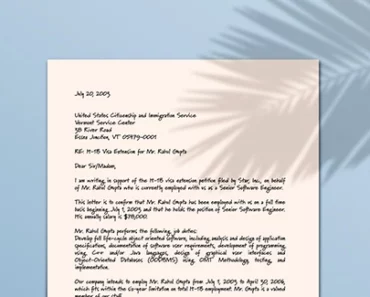How to Write a Petition Letter Against a Person for Court. Petition letters are an effective way to raise awareness of a particular issue. When written correctly, they can be powerful tools for influencing the decision makers who review them.
Start by researching the topic of your petition. Gather all relevant information, including newspaper articles, research papers and videos. This will help you build a strong support argument for your petition.
Write a compelling argument.
Petitions are a powerful way to draw attention to a cause. They raise awareness about the issue and encourage people to talk about it in their social groups and online. In addition, they help to influence the opinions of those in power. However, they must be drafted carefully to be successful. A well-written petition letter can make a difference in the outcome of a case.
To write a petition, start by clearly stating who you are. Include your first and last name, occupation, state of residence, and other relevant information. This will give your letter credibility and a sense of legitimacy. You can also use your letterhead to make the petition more official. This will also impress the recipient and may lead to more serious consideration of your appeal.
To create a compelling argument, it is important to gather all the relevant information you need. This includes researching the topic, interviewing experts, and gathering documents from reputable sources. Be sure to note the source and date of access. You should also include the names of any authors who contributed to your research. Using this evidence will strengthen your arguments and provide valid reasons for the claims you make. Moreover, it will show that you are a credible writer and not just a victim of injustice. Also, remember to use polite language. Threatening, cajoling, begging and flattery are not effective tactics for writing a petition.
Include relevant references.
A petition letter is usually written on standard 8.5 by 11-inch paper and addressed to the Honorable Judge (FIRST NAME) [LAST NAME]. There is also certain information that generally has to be included for a petition to be considered. This includes the names, addresses, and possibly birth dates of the individuals involved in the case. If you do not want your address to be made public, you can ask the court if there is a way for you to keep your address confidential.
The most important thing to remember when writing a petition is to use reputable sources. This will help to build your credibility and show that you have a legitimate reason for your request. In addition, it is important to be polite and avoid using harsh language or personal attacks. If you do, your petition may be dismissed as a cynical tactic.
Once you have a title for your petition, you should begin with a brief explanation of the situation. This should include what you are asking for and how it will benefit the people involved in your petition. It is important to write a persuasive statement that will convince the reader to sign your petition. You should also include the name of the person who is being petitioned, his/her profession, and state of residence.
Include your contact information.
It is important to clearly state your purpose for writing the petition. This will help the court know what you want it to do and why you are doing so. For example, if you are petitioning for leniency for someone who committed a crime, explain how the criminal’s actions have affected those around him or her. You may also want to explain the criminal’s past respectability in society and why the victim is begging for mercy.
You should include the capturing title, organization letterhead, your name, and the recipient’s name (if known). You should end your petition with a respectful salutation such as “Respectfully” or “Sincerely.” If you are the lead petitioner, make sure that you have the first signature on the petition page. If your petition is signed by multiple people or entities, you should have a list of all signatories with their names and physical addresses.
Petitioners are the people who bring a dispute or issue to court. They file paperwork and wait for the court to decide what to do. Once the court has all of the information that it needs, it will rule on the case. The rules of court vary by type of petition, so be sure to read the instructions carefully. It is also important to note that both sides of a case must file documents.
Distribute your petition.
Despite some common misconceptions, petitions can significantly affect the decision of those in power. They are considered the most civilized method of rallying a cause, which allows you to express your advocacy in an honest and respectful manner. You can ask for a change in a wide range of issues from changing the name of your neighborhood to your company’s pay policies. Regardless of the subject matter, your petition should stay truthful and respectful to have a greater chance at success.
If your petition is addressed to the government or parliament, it should follow certain regulations and be approved in order to have a legal status. In our modern times, the petition has taken on a new form – Internet petitions. In this case, those who support the petition add their names, email addresses, and physical address in order to be counted as signatories.
To make sure your petition will have a better chance of success, talk about the issue in public spaces and spread the word about the importance of signing it. It is also helpful to have a campaign briefing for volunteers so they will be able to explain the details of the petition to those interested in supporting it. Also, consider printing extra copies to reduce the waiting time as you collect signatures. This way, you won’t lose any potential supporters because of the wait time.
Sample of petition letter against a person for court Download Now





